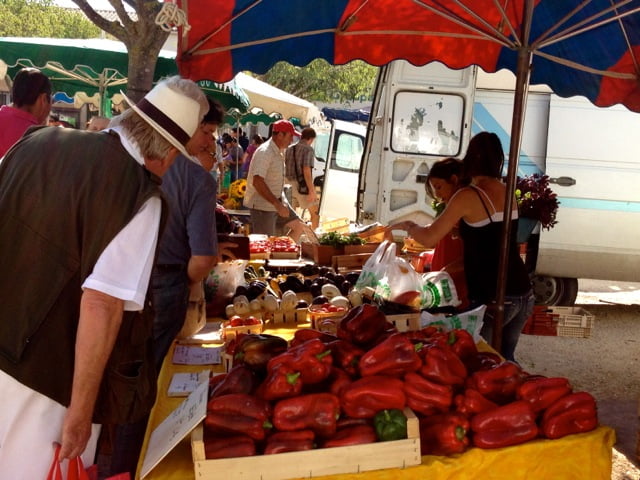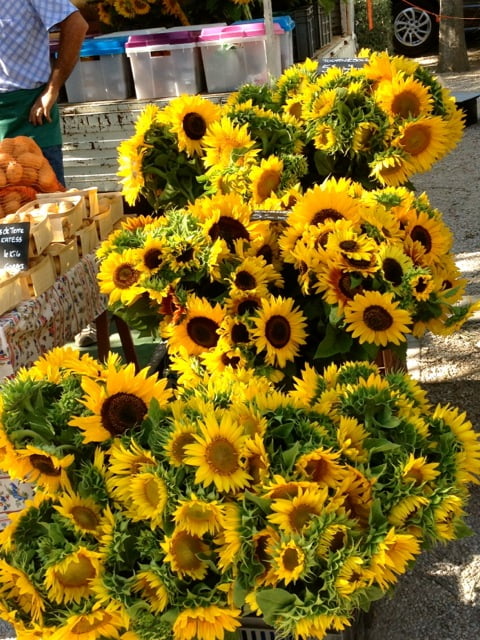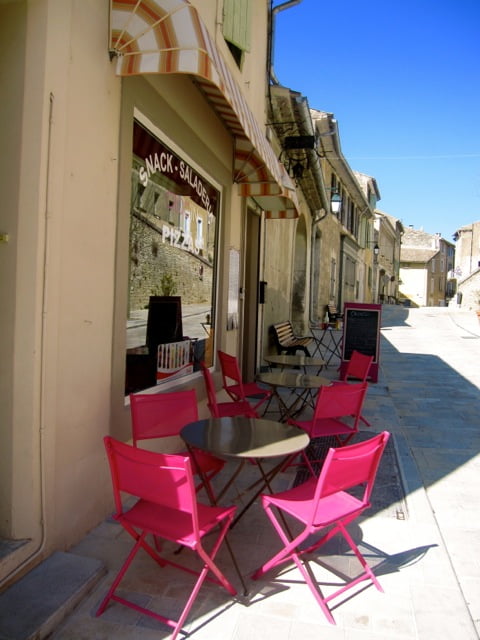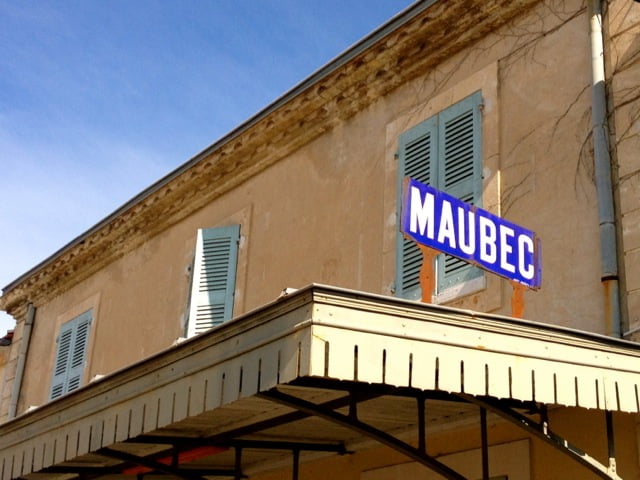Shoot-out in the South of France
I started learning French at the age of eight. Ever since, I’ve been entertaining a love affair with the language. But it hasn’t always been easy. It took one visit to the South of France to let me know I needed to step up my game.
French was my favourite and best subject in high school. I loved the language so much I majored in it at university. After university, I took conversational courses at an Alliance Française in Toronto in order to maintain a certain level of fluency. Between 2008 and 2010 I travelled to France several times a year. My husband Dominique and I were only dating at the time and his work took him to France three to four times a year. I worked extra hours and banked the time so that I could tag along with him.
These trips to France usually included mini-stays in Provence where my Dominique’s parents live. This was a dream come true: vacationing in the South of France and speaking French all day, every day. I even read Peter Mayle’s ‘A Year in Provence’ to get a good taste of life in the South of France.
I enjoyed reading the book and I felt I had a better insight into les Provençaux. But reading the book and living the experience are two different things. And I was about to learn the difference as friends were stopping by for lunch during one memorable vacation.
André and Josiane, both raised in the South, are long-time friends of my Dominique’s parents. I was a little nervous about meeting them because meeting new people in France is not the same as meeting new people in, say, Toronto. Customs are different and there are certain topics that you just don’t raise during a meal.
Introductions went well however and everyone exchanged la bise as is customary. I started to relax, a smile on my face, when it all happened. The machine gun fire. The rat-a-tat-tat-a-taaaat of what I think were French words as they were fired around the room.
“Huh?” That is all I could remember thinking. The accent was strong and the pace unforgivingly quick. Another blast and I was completely shell-shocked. I could feel my eyebrows rise into my hairline. My smile became a forced version of itself. And the shots kept coming, criss-crossing the room, hitting their mark. There was laughter and gunfire followed by more laughter. I stood there, quiet as a mouse, praying that it would stop.
It didn’t really stop but my prayers were answered as I found myself at the end of the table with the gunfire at the other end. Still, I said practically nothing during the meal.
That night I talked with Dominique about that afternoon’s lunch and about how I understood less than half of what André or Josiane said. He looked at me and said something that still makes me shake my head: “Tanya, sometimes I don’t understand the accent either.”
What language mishaps/misunderstandings have you experienced with the French?











Tanya, bonjour
votre sujet est l’un de mes préférés, car tout le monde est capable de faire des gaffes en parlant français, et assurez-vous que bon nombre de Français les font aussi. D’accord, quant à moi,…
En 1978, j’étais en Dordogne où je rendais visite à une famille dont une des filles (Francette) était ma correspondante depuis 7 ans. Un soir, après avoir quitté une disco/ bar avec piste de danse, j’étais dans la bagnole de mon amie/correspondante (siège passager avant) alors que la soeur cadette de mon amie (Patricia) était assise derrière moi. Nous, on attendait que revienne (revînt?)Francette (elle bavardait avec des copains quelque part). Auparavant dans le bar, quelque chose s’était passé qui m’a énervé et j’étais donc de mauvaise humeur. Ça devait se voir sur ma figure car Patricia m’a lancé: “Hé, Gérard, tu fais la moue?” Moi, je me suis trompé de mot – j’ai cru avoir entendu “l’amour” au lieu de “la moue”! En d’autres termes, je me suis fortement étonné que la soeur de mon amie essayât de me draguer!!
Comme vous pourrez bien deviner, tout le monde s’est bel et bien marré en découvrant ce que j’avais fait!
J’allais ajouter qu’à l’époque de Shakespeare, on employer ce mot mais anglicisé bien sûr et il est fort probable que l’on le prononçait de façon différente (c’est à dire qu’un ‘moue’ signifiait ‘a long face that one pulls’.
Oh la rigolade Fitz! Quelle histoire! Je vais la raconter à mon mari; il va l’adorer.
Oui, je connais le mot “moue” ou bien l’utilisation en anglais et je pense que l’on la pronociation est la même en anglais.
Tanya, je suis bien content que vous ayez trouvé mon récit rigolo. Il est probablement le meilleur dont je me souvienne. Pendant cette même visite,aussitôt que je pouvais me montrer suffisamment espiègle ou blagueur pour imiter l’accent régional des parents de mon amie (Francette)et assez détendu pour faire des commentaires humoristiques à propos de quoi que ce soit, la mère de Francette m’a dit (plusieurs fois, en fait): “Ah mais toi, tu es un vrai Coluche!”. Moi, j’ai deviné un peu ce qu’elle voulait dire mais je m’étais trompé du mot “Coluche”, le prenant pour un synonyme de “comique”. J’avais raison jusqu’à un certain point car Michel Colucci (Coluche), comme j’ai appris bien après ce temps-là,était artiste, un véritable touche-à-tout,qui a fondé les Restos du Coeur. Mais, j’ai continué, moi, à utiliser le mot ‘coluche’ [avec ‘c’ miniscule]en tant que synonyme de ‘comique’ (par exemple: “Vous connaissez ce numéro de Billy Connolly; c’est un coluche écossais très connu”/”il devrait y avoir plus de femmes-coluches dans le show-biz, etc.) jusqu’à ce que je me sois rendu compte éventuellement de mon erreur/pataquès?/impropriété de langue?